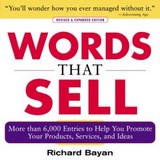The Debut Novel Controversy
Several weeks ago in the mid-March issue of Publisher’s Weekly, an article caught my attention with the headline, “Debunking the Debut, How valuable is the term ‘debut’ when it comes to pushing a book?” Dutton is promoting the forthcoming coming of age novel from Eva Rice, The Lost Art of Keeping Secrets and in the press materials calling it her “debut novel.”
Here’s the key information in Rachel Deahl’s excellent article, “Twice dubbing it a “debut” effort, the publisher fails to mention that the book, written by the daughter of famed
See the discussion? Rice previously published two novels in the U.K. and in fact, Lost Art isn’t a debut (or first) novel but it’s her first U.S. novel. A certain segment of the fiction reviewing press loves to look at first-time novelist and review those books. Dutton is trying to take full advantage of their opportunity and include Lost Art among the books considered for this section. Supposedly you can only debut once and the article continues with the perspectives of different publishing insiders and journalists. Like it or not, the discussion about debut has garnered Eva Rice even more media attention.
Years ago, one of my long-time publicist friends told me that any publicity is good publicity. Whether that publicity is positive or negative at least people are talking about the book. It points out the challenge for any author and any book—to get attention. The author can’t leave the publicity and marketing efforts in the hands of their publisher. Instead, it takes a team—the author and the publisher constantly promoting their book. In some cases, the book takes a while to find it’s niche in the market. In other cases, the book never finds that niche and is taken out of print. Lissa Warren has some great advice in her article, Ten Things To Do If Your Book Isn’t Getting Media Attention. Use this article as a s pringboard for your own book publicity or marketing plans.And as you create those plans make certain you are using the most powerful words you can use to promote and sell your product.
pringboard for your own book publicity or marketing plans.And as you create those plans make certain you are using the most powerful words you can use to promote and sell your product.
How do you learn those words? Some people are naturals at using these words to draw people to a product. Others struggle to find the right word. If you fall into the struggle category, I recommend you get a copy of Words That Sell by Richard Bayan. As I was writing this entry, I noticed last year, the publisher released a new edition of this reference book. As I’ve written promotional material for different books or projects, I’ve turned to this book as a resource. The new edition shows how the words to promote are constantly evolving and changing. As writers and editors, we have to continue to work at our craft and make sure we are using the most power-packed words in our news releases or advertising or promotional letters.
The controversy over the use of words like debut will continue. Maybe it’s taught us how to gain more attention for our project.





















0 Comment:
Post a Comment
That's the writing life...
Back to the home page...